Can Responsible Tourism in India Challenge Patriarchy?

I look at my past travels to examine if responsible tourism in India can challenge deep-seated patriarchy and lead to women empowerment.
Over the course of my travels in India, I’ve found myself in some strange predicaments. Once, I was in the home of a middle class family in the mountains, ready to pounce on delicious local food after a long, back-breaking journey. But when I arrived in the dining area, I found myself joined only by the men of the family, as the women served, and then waited on us from a distance.
I sat in awkward silence, not sure if I should join the women in the kitchen and further the house’s patriarchal traditions, or eat with the men as the women waited. I could imagine the same scene playing out in hundreds of households across the country.
At the end of the awkward (though delicious) meal, the elderly male head of the household said to me with a disconcerting confidence: I think I’ve figured out why you ate so little, it was probably because you were eating in my presence.
As much as I hate to admit it, India is a country with a deep-seated patriarchy, that reveals itself in everyday life almost everywhere you look.
Ordinarily, I would’ve left the following morning in anger and hopelessness, but I was here wearing the hat of a responsible tourism consultant, assessing the place for its sustainable tourism potential (it fared well on the environmental friendliness scale) and advising on its marketing strategy. That made me stay and reflect on how a responsible approach to tourism could challenge patriarchy in India and elsewhere:
Questioning age-old traditions
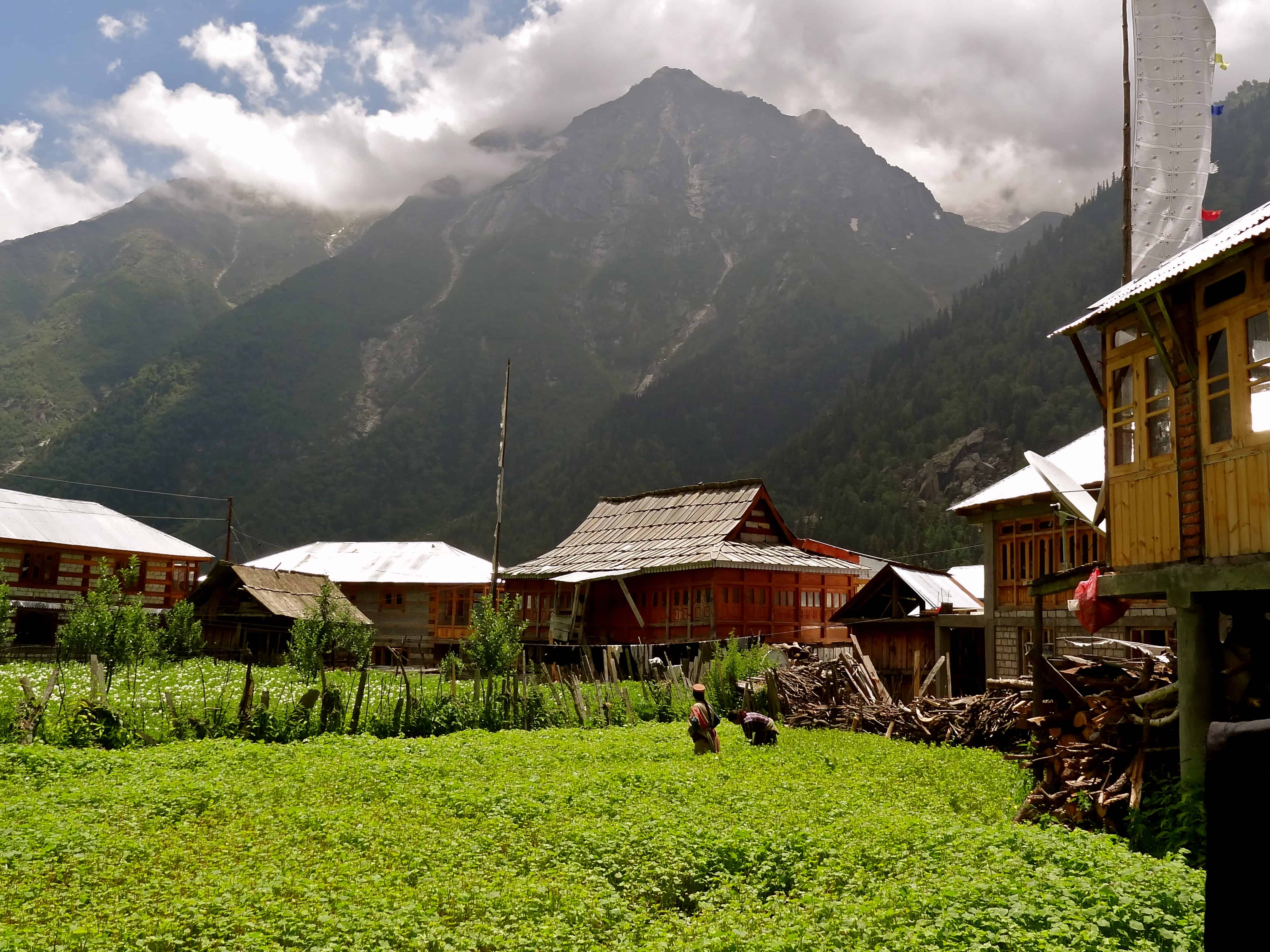
Let’s take my current predicament as an example. It wasn’t just that the women of the household ate leftovers by themselves in the kitchen, after the men were done. It was the way the head of the household constantly ordered them around, decided whose turn it was to speak and when (mine included), and proudly shared how his sons’ futures were decided solely by him.
After a brief conversation with a friend, I decided to take a stand and bring up the issue with the family – but with tourism as the focus. I talked about meal times as the crux of a genuine homestay experience, when the whole family comes together as one and discusses the day’s affairs. I talked of inequality in certain Indian traditions and how that’s unacceptable to visitors from outside. I tried to sow a seed in the mind of the somewhat irked elder that in order to bring responsible tourism to his beautiful village, something must change.
Whether that seed will nurture itself over time remains to be seen, but the way I see it, the promise of economic prosperity through tourism can change even the most deep set beliefs.
Also read: 15 Responsible Travel Tips for Authentic, Meaningful Experiences on the Road
Homestays ‘owned’ by women
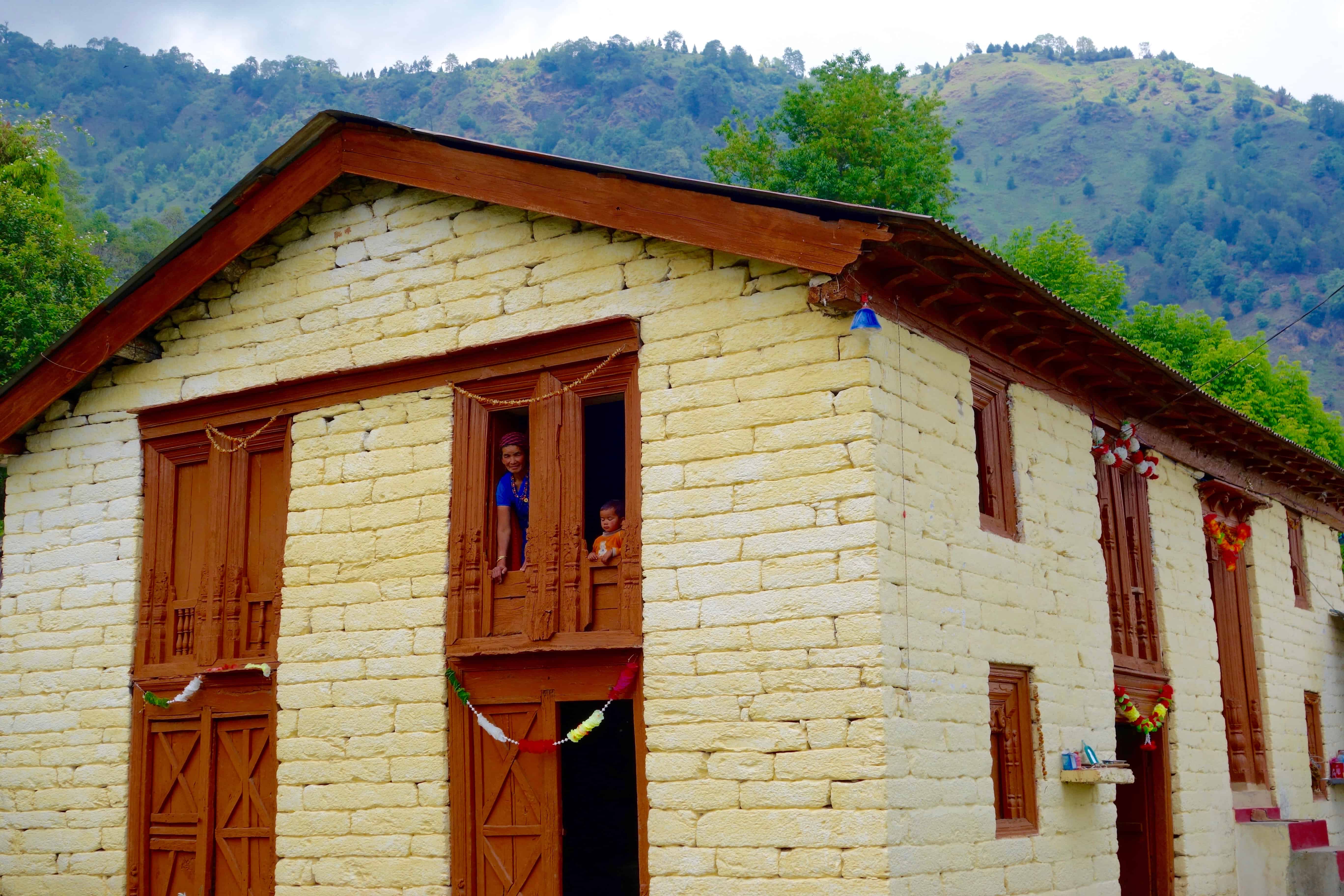
In much of rural India, women go from their father’s house to their husband’s house, and if they outlive their partner, their son’s house. No matter their physical or economic contribution in the household, they seldom have land rights to their own homes.
That felt different in the village of Sarmoli, near Munsiari, where I spent 3 weeks exploring the challenges and impact of community-driven tourism. In 2004, Malika Virdi, an avid mountain climber and an inspiring soul, set up a homestay program managed by the village women. She deliberately positioned each homestay as the home of the female family member who would toil behind the scenes and pour in love and sleepless nights to welcome travellers from around the world.
Many husbands now assist the women in their homestay operations, but what warmed my heart is this: When you walk around the village and ask a local for the way to someone’s house, they know it better when you take the woman’s name. Changing ownership mindsets slowly but gradually? I think so.
Also read: What the Kumaoni People of Uttarakhand Taught Me About Life
Responsible tourism in India can support women in roles traditionally held by men
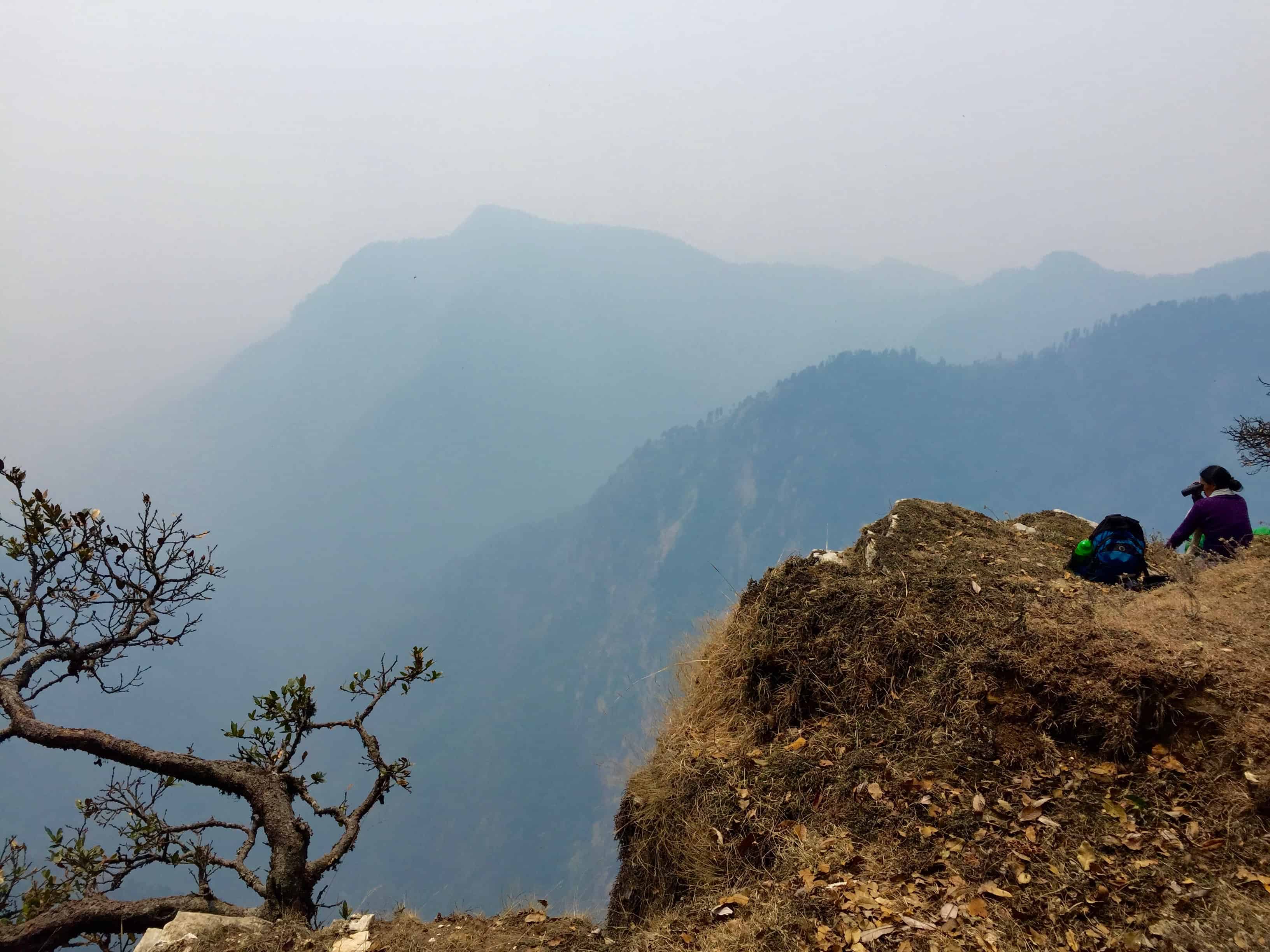
In all my travels, I went hiking with a female guide only the second time in Sarmoli village. The women’s self-help group encouraged her to undergo professional guide training in Mussoorie, and even though she manages her household like every woman in the village, she said she loves hiking more! We hitched a ride with some army guys, walked through old forests, made tea on a quiet hill, talked like long lost friends. It made me wonder, why haven’t I hiked with female guides more?
The women guides of Ladakh and Bolivia (South America) have created their own initiatives, and while in Bhimtal, I heard of a young local girl who takes visitors on guided kayaking trips on the Sattal lakes. All these women are sending out a powerful message – that when tourism broadens mindsets, women who grew up in small Indian villages can compete with their male counterparts in strength, confidence and capability, in roles beyond household work.
Also read: Offbeat, Incredible and Sustainable – Travel Companies Changing the Way we Experience India
Financial independence for women through responsible tourism in India
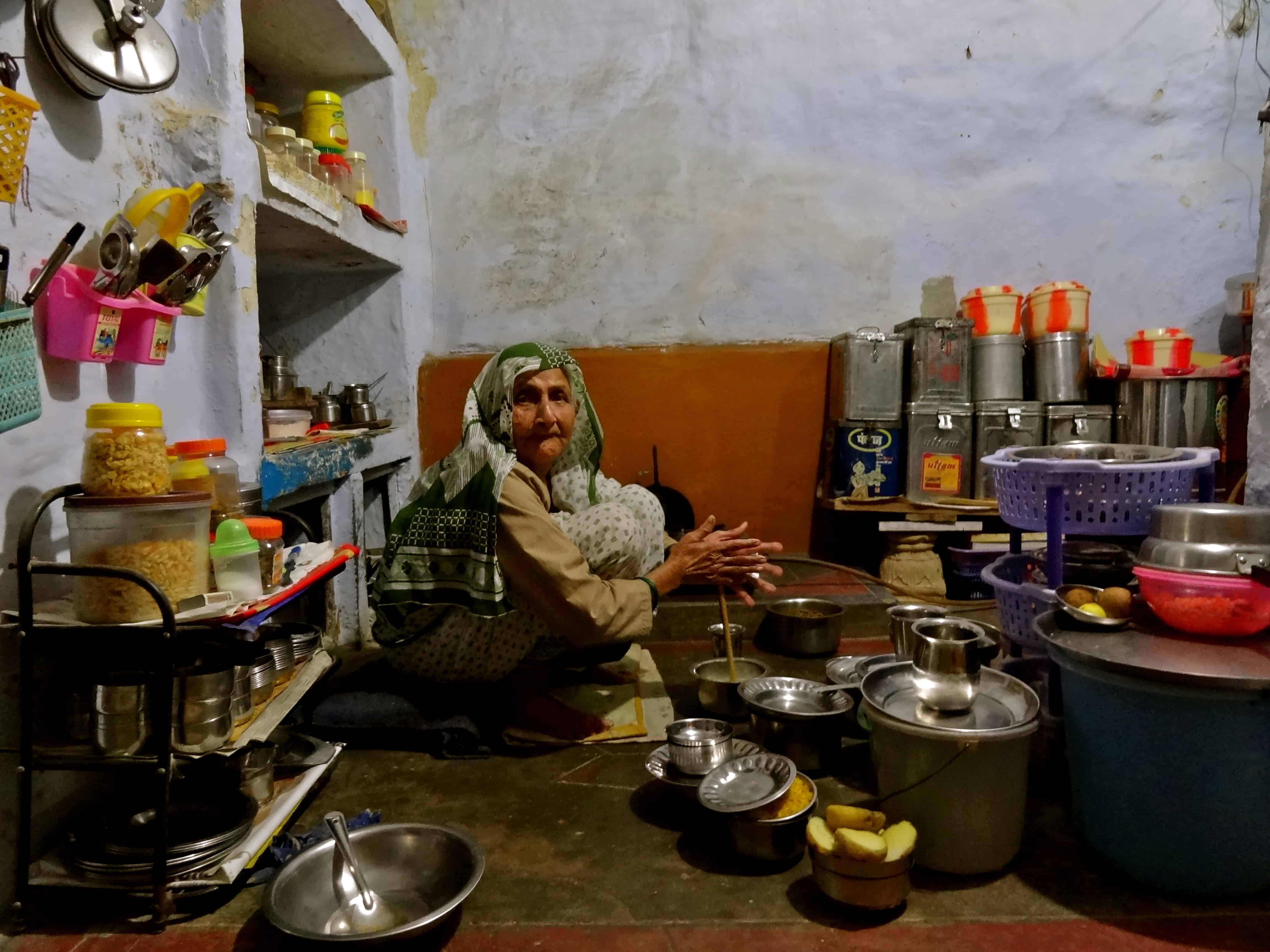
Buying and eating local is not just an important tenet of responsible tourism, but a deeper attempt to connect with the places we travel to. In the Jaisalmer Fort of Rajasthan, this attempt led me to the home-resto of Chandra Nani, aged 70+; in Jordan, to the women-led soap and biscuit house in Ajiloun; and in Karnataka, to the gypsy community outside Hampi . These enterprises are reviving old traditions, and enabling women to either live financially independent lives, or become the main bread earners for their families.
Studies have shown that when women achieve financial freedom – which can be actively encouraged when we, as travellers, insist on buying local products – the effects trickle down to their childrens’ education and in opposition to patriarchal mindsets, create more economic opportunities for women of the next generation.
Also read: How Social Enterprises are Changing Travel in Rural India
Empowerment through solo travel
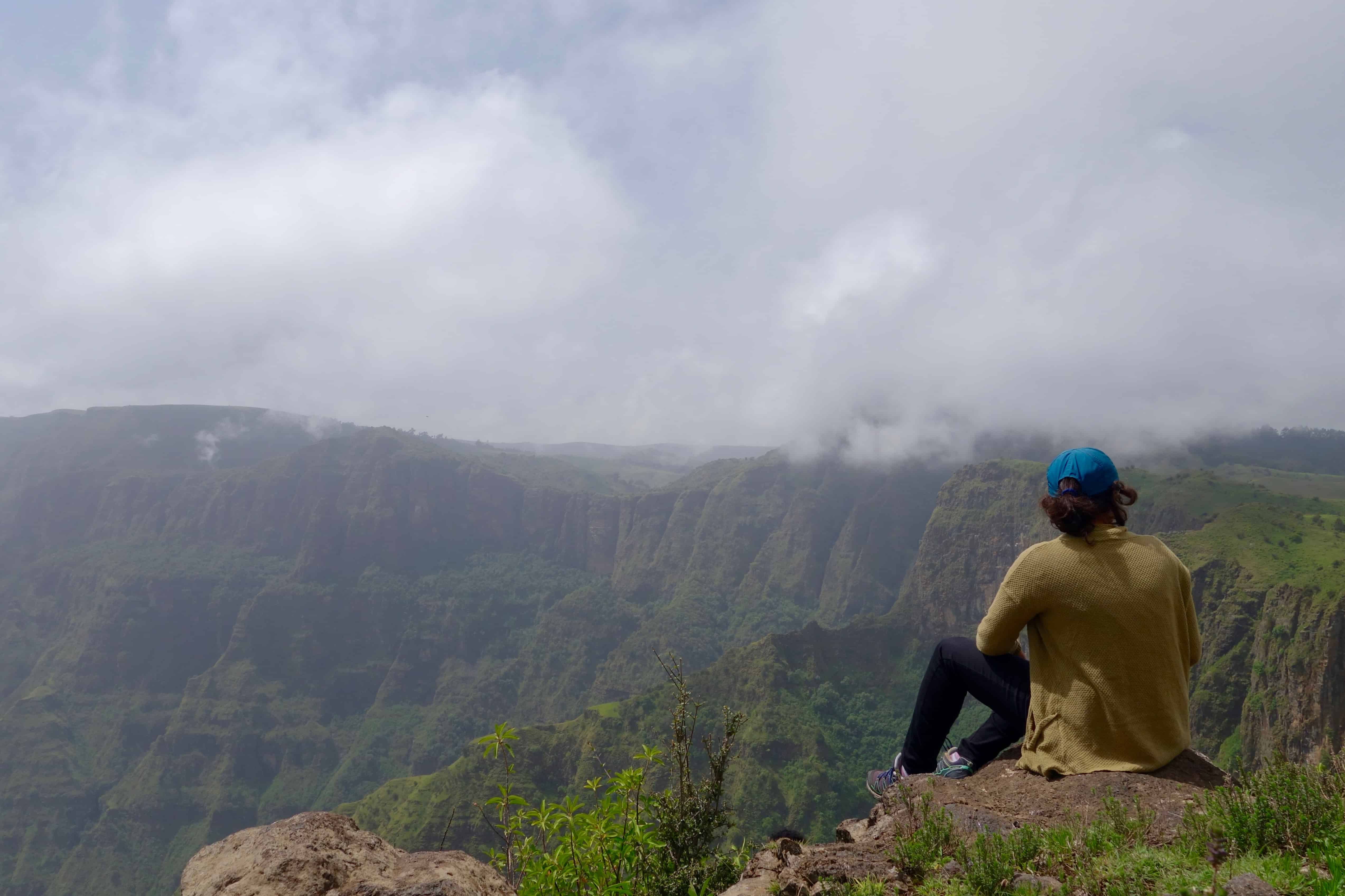
For a long time, I travelled solo for myself – to understand the ways of the world and my own limitations. I started blogging to share my (mis)adventures with others who longed for solitude and depth in their travels, but weren’t sure if traveling alone was worth experimenting with.
Truth is, when I travelled in rural India, I tried to keep my rebellious notions (on marriage, kids and independence for instance) to myself, for fear of corroding a conservative culture. My focus was always the stories of those I met along the way.
Then during my discussions with Malika in Sarmoli, I had an epiphany. I realized that the people I had broadly labelled as “conservative”, are people like you and me; people who have liberal ideas but are boxed into a conservative way of thinking. I know from personal experience that ideas that go against societal notions are never readily accepted.
So the next time a woman from the village asked me about my marital status, I didn’t dodge the topic. I told her why I felt marriage was unnecessary in today’s society, where women (her included) can be financially independent, and even though I have a partner, I never intend to get married. She seemed to understand my choices after some hesitation, and agreed that if that’s a choice her children made, she would accept it. Atleast it’s food for thought…
And so is solo travel. The fact that a young, single woman can travel by herself, without relying on a man to keep her safe, carry her things, make decisions for her, or support her financially, is a message that I think every woman who travels can carry to our sisters in rural India.
Also read: Solo Travel: To Go or Not To Go
Responsible tourism in India and women self-help groups
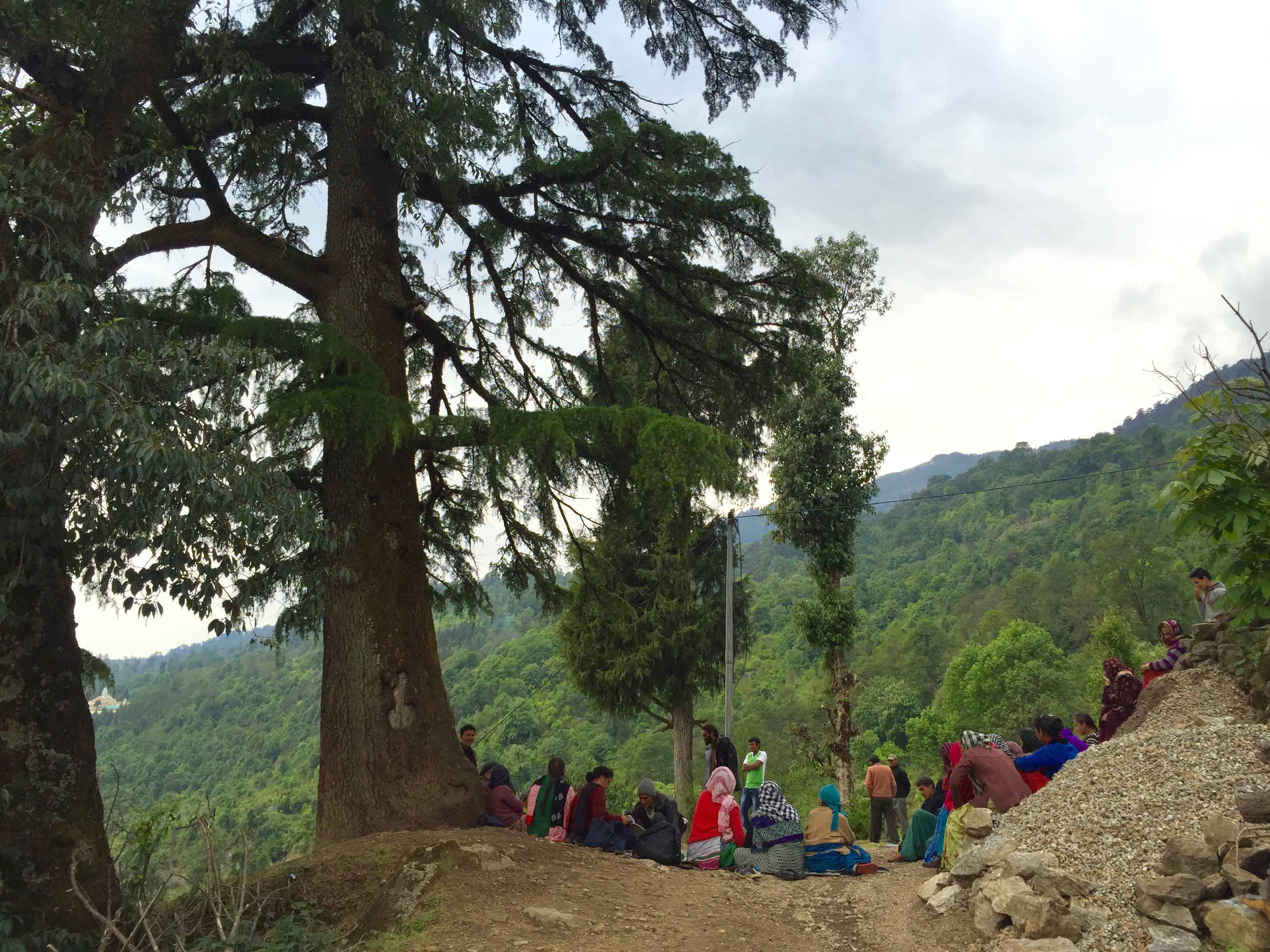
I never realized the power of a small group of women coming together to confront an issue, until I observed for 3 straight weeks, the challenges taken on by the Maati Sangathan in the villages around Munsiari. Among heart-wrenching stories of domestic abuse, alcoholism and caste violence in these parts, there were uplifting stories of women (from across economic backgrounds and religious faiths) fighting for each other’s rights.
Where does responsible tourism factor in? While many self-help groups around the world rely on funding from donors, perhaps the most empowered ones are those that generate their own funds through community-driven tourism.
Also read: Sustainable Living Ideas to Embrace as we Emerge Into a New “Normal”
Bringing ideas to forward-thinking men in rural India
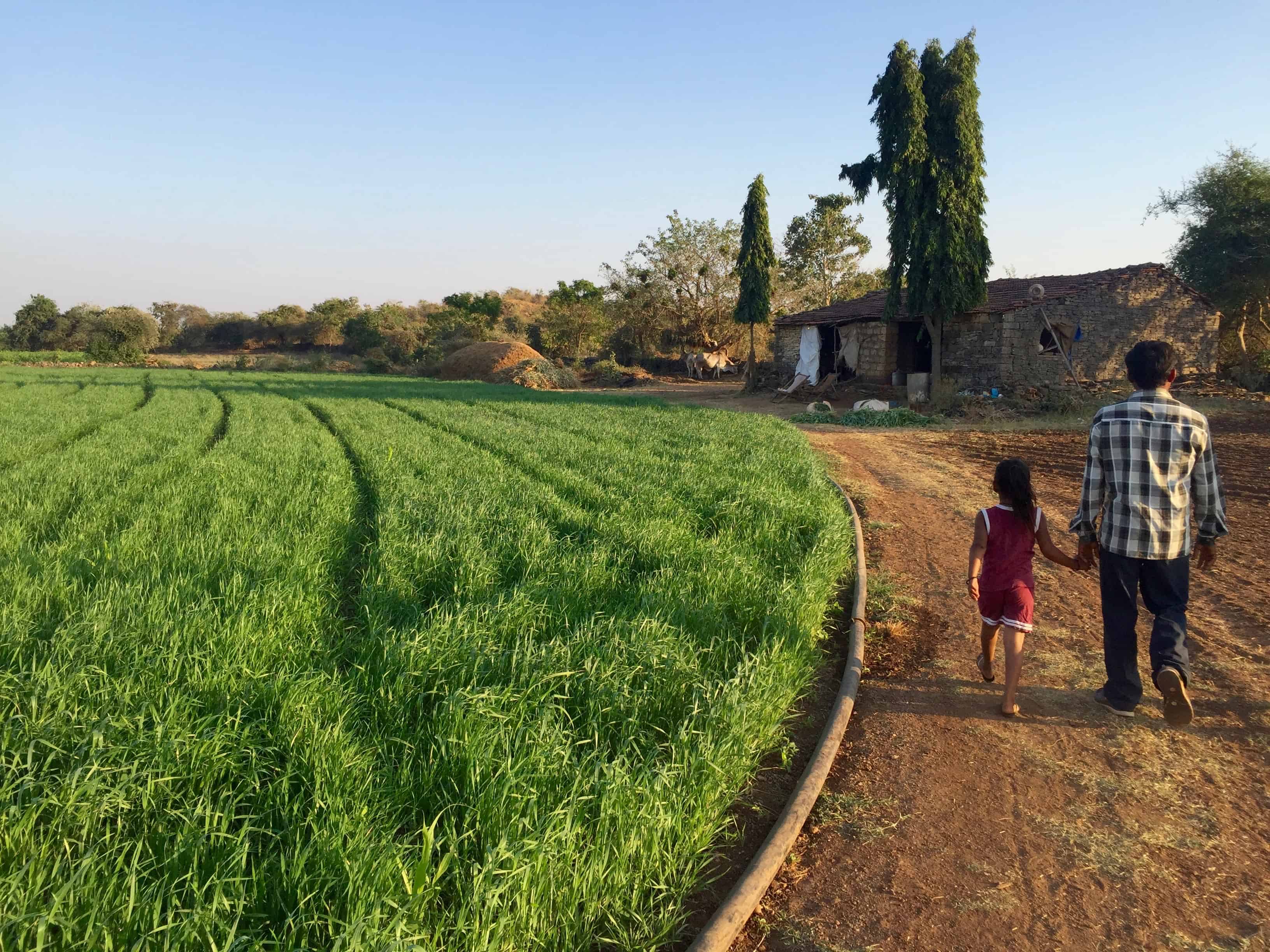
You’ve probably dismissed me as a feminist by now, but I think many men in rural India are as much the victims of patriarchal mindsets as women. When you grow up in a household where you are worshipped given preference over your sisters by every adult around you, any ideas of gender equality probably feel alien.
Let me give you an example: While living at an organic farm in the buffer zone of Gir National Park, I became friends with a girl and a boy, cousins of about the same age, who grew up in a joint family under the same roof. Both had finished high school and enrolled in college (pretty progressive for rural India), but when we decided to stay in touch, it turned out that only the boy had access to a mobile phone, Facebook and Whatsapp – tools that, if used well, can bring opportunities to young adults in rural India. When asked why, the boy laughed and told me that the family feared that getting online or having a phone will lead the girl “astray”.
That led us to a serious discussion, where I shared how the internet had helped me carve out a job for myself that didn’t exist until a few years ago – and afforded me the financial and physical freedom to be in Gujarat, talking to them. By the time I left, he confessed to me that even though he couldn’t fight at home to get his cousin a phone, he would ensure his daughters have one when he became a father.
I’ve been lucky enough to meet several open-minded men on my travels across India – men who didn’t assume that a woman traveling alone is desperate for male company, men who think it’s normal for women to work outside the house, men who encourage their wives to follow their passion for art or hiking or even boxing (yes, I’m thinking of Mary Kom). If you ask me, honest interactions and discussions with men on our travels is an important step towards eliminating patriarchal mindsets.
Also read: What India (and the world) Can Learn from Sustainable Tourism in Kerala
Also read: What is Community Tourism Anyway?
Have you encountered patriarchal mindsets on your travels in India? Do you think responsible tourism in India could make a difference?

Hi there! I’m Shivya, and I started this travel blog back in 2011, when travel wasn’t trendy, Instagram didn’t exist and AI wasn’t a thing (simpler times, I know!). I write about slow, meaningful and conscious travel – that is good for us, the places we visit, the people we meet along the way, and the planet at large. Settle down, grab a cup of tea, and read stories that remind you of the essence of travel. I’m so glad you found me!


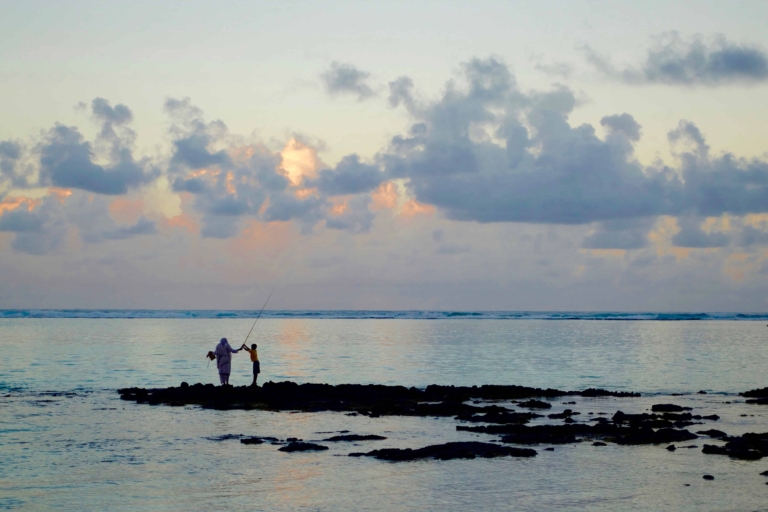
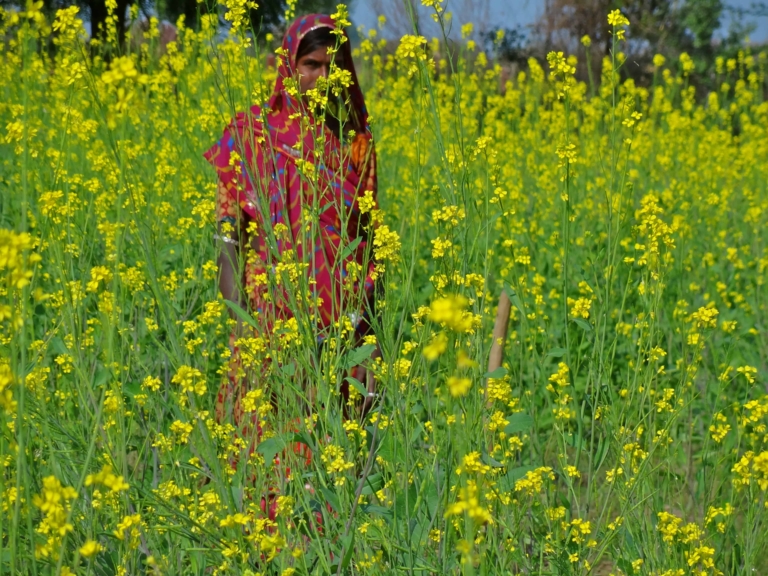
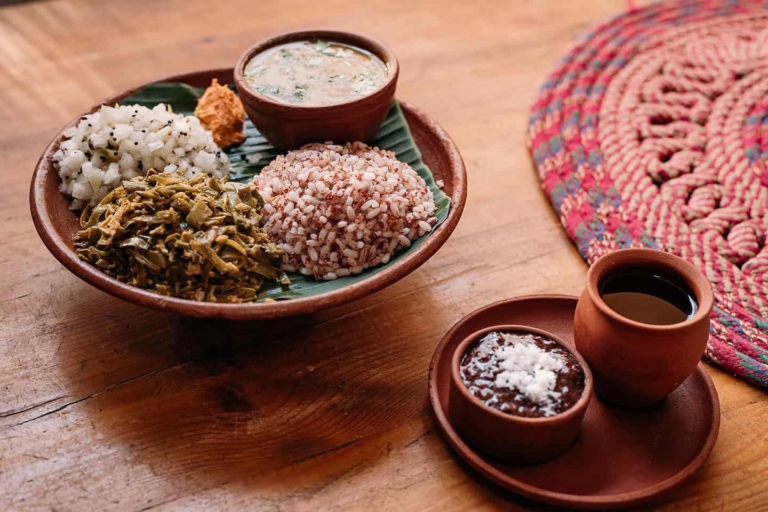
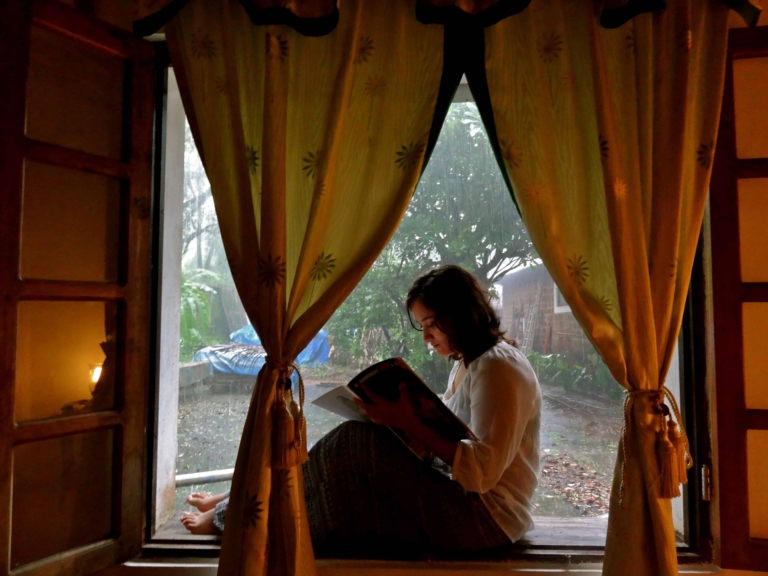
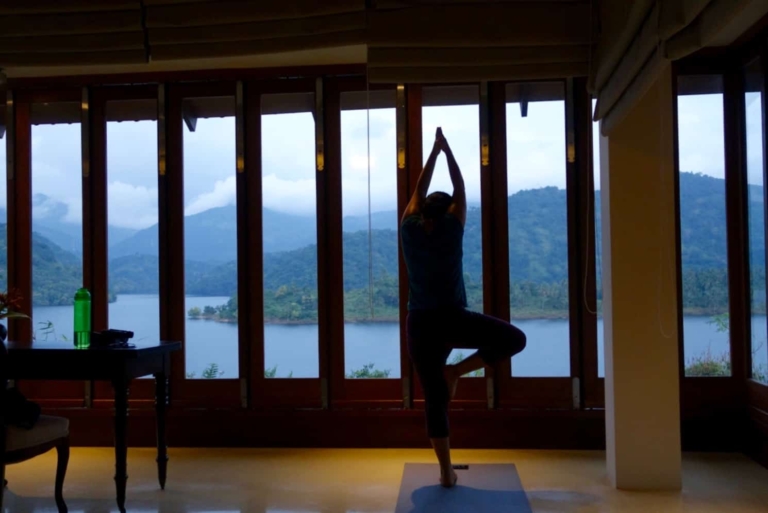
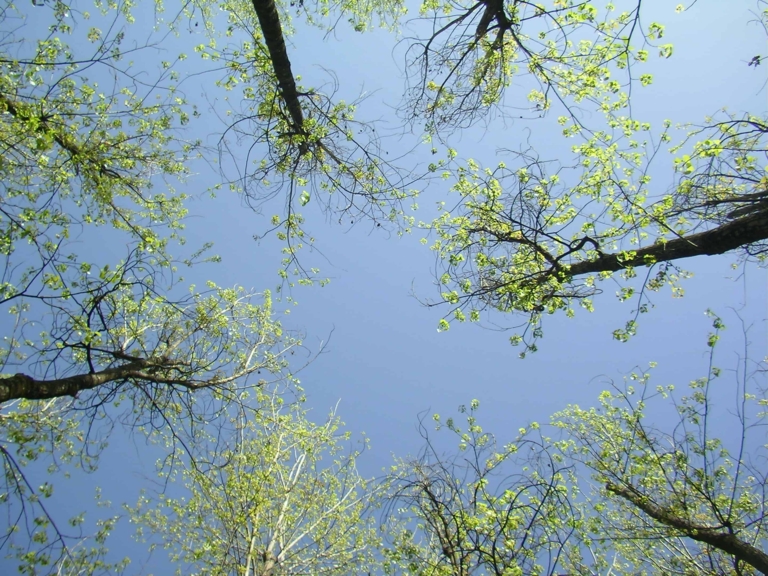
Loved reading this, thank you! So important! I will tray to find a female guide here in the Mulanje massive in Malawi, where society is extremely patriarchal as well. All the best!
Thanks, and that’s a great idea. Something I want to do on all my travels too, though haven’t had much luck so far in Ethiopia.
little update: didn’t find any female guides, apparently it lacks of tents for them to sleep in the mountains as they don’t want to sleep in one hut with the male guides. i’ll try to organize some tents for them. will keep you posted on the progress! good luck in ethiopia!
Lol I do agree. Beautiful blog!! Nice..
Wonderful reading this post, wish things change for the better and hopefully soon too.
Long shot, but we can hope 😉
This is a very important post and as much as we have this view that it’s only in countries of south Asia or middle East that are stuck in stereotypical gender roles, even advanced countries have subtle prejudices. Education alone doesn’t suffice as even with advanced degrees, people do not seem to move beyond ingrained traditions. Responsible traveling or seeing the practical benefits of the ‘unconventional’ is perhaps one of the best ways to break these shackles.
I know what you mean Lalitha, although I find that it’s a lot more pronounced, petty and everyday in India.
A good read!! I really wonder how soon the change can happen, for the culture is prevalent in cities, mostly among migrated families who still follow and expect the same in future. Many times it is the respect they command, yet differentiation cannot be left unnoticed.
Migrated families? I think it’s deeply ingrained in all families, no matter which part of the country, no matter how educated or rich. Change won’t happen so soon, but even if we can speak out against the daily prejudices we see everyday, a little change is bound to happen – I think!
Agree to you
Nice observations. Another way to bring equality is, maybe, to increase the cost of living drastically so that both partners will have to work. This, I guess, worked in the cities.
Destination Infinity
Loved reading this post Shivya. You are right. Responsible tourism can bring about a great shift in mindset. For that, I think travel itself broadens your horizons in many way. I recently myself wrote a similar article on my blog, where a driver explained me the meaning of true love (his driver friend fell in love with his client, an old man asked me about who decides which country we belong to, a passport? And somewhere in Bhutan, a man told me how being the happiest country in the world doesn’t mean, they don’t feel sad about someone else’s pain.) My mind was blown. Traveling has taught me what no classroom could 🙂
Amazing how being out there can put things into perspective. I was thinking of your comment just recently when someone on Twitter argued that with Bhutan, happiness is a “place”.
Loved the initiatives and efforts you take Shivya. I believe the change has already begun and tourism can make huge impact in the way people think because travellers will always have experiences and therefore stories. If you can even ignite one soul with your ideas you have started a fire. Things will change. Better days would follow. Keep travelling and keep igniting souls. All the best
Thanks for the positivity Kazak, we need it so much in today’s world where things can feel really quite hopeless!
This is a thoughtful post and puts responsible travelling into a new light altogether, for me. I am working in a sector where addressing gender disparity is a core theme of programs. However, your thoughts really put a new perspective to look at micro-planning and livelihood initiatives in villages in India. Keep travelling and sharing your lovely stories!
That’s interesting to know, Ankita. Would love to hear more about your work; if you’d like to share, I’m at [email protected].
Great article, Shivya!!! I believe your out of the box thinking and approach will help to bring desired changes in the villages you have planned to work. Change does not happen in a day. But it’s all in our mind. Proper analysis, thinking, and initiative like this can accelerate the process. More schools and education is also necessary in rural areas to support the process of change.
Thanks for the encouragement Moon; I don’t have a concrete plan yet but have started taking on freelance consulting work in sustainable travel – we’ll see how that goes. I don’t know if education as it is now plays a role, because some of the most educated parts of our country are heavily patriarchal too!
Education is the real building block but in our schools, I doubt if we are actually ‘educating’ our children. So your doubt is relevant. But through initiatives like ‘Shiksha’ the youngsters are interacting with the young souls and giving them more than their syllabuses. So let’s hope. Hope is a very powerful tool.
I really enjoyed reading this post. Travel can really changed the mindset of people when they open their minds to different ideas and ways of doing things, not just for the traveler, but also the locals.
Thanks! And I agree; it took me a long time to see the impact it can have on locals, but it certainly does have an impact.
Fantastic read and absolutely spot on. We witnessed a huge amount of patriarchy throughout our travels in India including an experience at a rural home stay where the exact situation you described at the start of the post happened. I really wish that we had challenged them on this, particularly as they marketed themselves under the umbrella of responsible tourism. Should we find ourselves in a similar position again, we will.
Thanks Eliza. I can only imagine how much patriarchy must’ve reared its ugly head on your travels through India, but I’m glad you’ll question it the next time it happens (and that you say there might be a next time ;-)). Imagine if all of us started doing it, something will have to change!
Brilliantly written, Shivya.
India and patriarchy are two inseparable synonyms 😛
I have encountered patriarchal mindsets on my travels across India. People (men and women both) freak out when they see a girl driving, especially on the mountains. On a very recent trip to Dalhousie, I was snubbed by a young man for taking an 8-hour self drive trip with my mother alone. He somehow saw it as a big deal and was wondering how I would fix my flat tire without any help from him. Thank god, my father caught me some DIY! This is just one of the many incidents that I’ve faced. But, you know the air of change is flowing through India – maybe VERY slowly – but it is and I’m sure you’re take on responsible tourism can improve a lot of things for the women.
How cool that you’ve been driving through the Himalayas, Teesha. It reminds me that I need to teach myself to get behind a wheel soon 😉 I think the very fact that you’re driving alone or with your mom must be food for thought for the men (and women) you meet – even if they don’t express it in so many words. Keep doing what you do, hope our paths cross sometime!
Beautifully penned….. the message so clear. Travelling is an eye opener and self experience is the most powerful teacher and tool. For a better and progressive society we all should work towards bridging the gender disparity. However small the step ….. if right and done well it will have a positive impact.
Shivya,
I believe in the adage that to make a big difference you need to start with small steps.. Reading this article, as a fellow Indian woman I am extremely proud of you.
WOW! I fully agree on your perspective on the empowerment through solo travel as i can relate to it being a solo traveler myself. My last visit was to Goa and happen to visit some of its most stunning beaches. I adore your freedom and envy that some day I can pursue this dream as well!:)
I can feel the way the hard hitting practices have gotten to you. We should be doing our bit. Must. Loved the writeup.
Much needed post Shivya 👏. Let’s hope for the best. Coming to patriarchy, well I have seen rebels giving up. People like us with “unconventional” thoughts should have the faith in keep going with our views. Change happens gradually. And only faith can take us miles.
True, this is ingrained in most of the families in India. The best way is to start working on this is from our own family. Thought there has been some change from our Parents era but not enough. Gender equality is very important. Nice post and one of the good things about solo travel is that it helps us understand the world from a different perspective.
If nothing else, I guess men who really love their daughters should be willing to join the fight for equality. For I’m sure, they would want a world that welcomed their kids and accorded them respect and opportunities irrespective of their sex. Loved this article.
Haii Shivya… Nice to meet you with this blog. its awesome hear about your journey and the others who are inspired with your travellogues. i am from Kerala myself Archana. and i hope you also enjoyed the nature of Kerala. if not i welcome you to the gods own country. Thank You!
First of all, this is definitely a great read. Thank you very much for sharing your story and the stories of the women in India.
I am from the Philippines, and I am a part of a college-based student-organization who advocates responsible tourism. We just started in 2014. I would just like to say how inspired I am with your story. I never realized how responsible tourism can spark such change in the society.
I’m looking forward to reading more of your stories. You are such an inspiration to all the women out there.
Absolutely love what you are upto these days Shivya! Tourism has become more fashionable today, and what we desperately need is more of sustainable and responsible tourism to be practised. Strange enough though, when I set to answer your question, if I have had any patriarchal encounters, I couldn’t pinpoint to any in particular although I know it exists; it is very much there. I haven’t travelled much, but I could sense it in my travels across Rajasthan. At the same time, I’ve been to some parts where it is the opposite (matriarchal societies) or the roles are kept in harmony, with both genders helping one another. Manipur, Mizoram and Meghalaya to some extent, parts of Bengal have a culture where men do not get to eat all of their cake all the time, and in my recent visit to the Spiti valley I saw that men ran the homestays, did the cooking, while the women tended to their farms. So, I think it has a lot to do with the cultural backgrounds of these places too.
Things are changing slowly though. I find immense happiness in seeing ecommerce sites that support tribal women to sell their handicrafts, institutes encouraging more women to enroll for mountaineering, etc. Schools too have taken baby steps towards introducing tourism as a vocational subject which gives us some hope. I get to interact with children and share travel experiences with them, where I do not hesitate to let them know that becoming a woman guide is the new trend! 🙂 (Their parents think studying tourism means only becoming a guide anyway, which needs to be changed too). In one of my travels, at the Chittorgarh Fort area, as a woman, it felt so nice seeing another woman work as a guide. Not to typecast her, but the fact that she had saree on, made her just as graceful even in this job!
Sorry, this became a long comment :/
I enjoyed reading your post. Things about solo traveler, home entrepreneur and homestays was awesome.
Great post, Shivya. Loved the clarity of thought and of course the sentiment. We need more women and men to stand up for what is right and make that change happen. So glad you are doing your part. More power and adventures to you!
JC (@vodkaholic)
Ah, hope there would be change, slow, steady and STRONG. Since this patriarchal mindset has been imbibed in everyone from ages, it will definitely take a lot of time but it sure isn’t impossible. Good job being vocal about it, Shivya.
And ya, what’s with tagging someone as “feminist” in a wrong way! Its becoming a trend now. Such people don’t even realize the true meaning of feminism, which is bringing gender equality. Its not about favoring women over men. I feel like throwing a dictionary at their faces!
Beautiful piece, and i’m so happy to hear about the community tourism project where women are taking the lead! One observation is that it can be so confusing as outsiders to understand the culture, and how much to challenge the status quo. Things can appear very different from the outside as opposed to how they really are. One of my best experiences on my recent trip to India was a cooking workshop – run by an amazing women – the business and running it was clearly hers and she delivered the workshops with such passion and love, her husband supporting her and helping by her side – the teamwork was great to see.
Nice blog!! Your skill to narrate something is awesome.
Beautifully written Shivya and I can so relate to this. People (men and women both) have actually stopped and turned when they found me driving in the hills. But you know the best part, you do notice small changes happening here and there these days. Last year when i was driving across the Chang La (in Leh at 17,000+ feet) an army guy actually saluted me. Now how awesome is that! It will change, but it will take time and our continued efforts to bring in that much required change. Keep up the great work that you are doing. Cheers!
Nice Blog….really great
Amazing pictures, less ventured and Unexplored. Great work
awesome here
The more we talk about it right?
Kerala, known as ‘God’s own country’ in tourism circles has many homestays managed by women. It may be of interest that matriarchal practice is prevalent. Before the British when local kingdoms were ruling, the successor to the throne was the son of the king’s sister. Property ownership of families followed the same pattern.
What is written is more or less correct, but I don’t think it is that bad.
May be that I am a Keralite and would defend Kerala and tourism. But I also believe that girls are the smarter. And Kerala is the state in india where there are more girls in the population. That says a lot. When it’s otherwise, it’s reason is severe needing attention.
I hope we will find solutions for all the things that are not good
Very beautiful
Being an indian i can relate to this post.. #a good post to read😇
Nice blog. well conveyed
This post was very unique and worth sharing. Women Empowerment does not come from one person but from all. India cannot change without breaking the orthodox mindsets. I felt refreshed after reading it. Thanks a lot for posting !😊
So what is the journey from here ? Anyways quite informative and yes I do agree …
Nice to read a more mature approach to patriarchy where you kept it in perspective instead of getting mad. You win more friends with honey, and it sounds like you sewed a little seed there.
I am re-blogging this on my blog. Needed such an article since a long time
Reblogged this and commented:
An Awesome and Unique article on Travel ‘How Responsible Tourism Can Challenge Patriarchy in India.’
Very intriguing indeed. Loved reading a novel idea with regards to challenging the patriarchal structure . Especially with reference to the more marginalised rural women.
inkingimpressions.
Nice page
This is so inspiring to read! 😊 Keep up the good work 👍
Thanks for this post. It really does give a wonderful insight into life out there in other countries. Change can be very slow!
what I found startling about India was not that the women work hard in what we Westerners consider traditionally females roles. it was that the women seemed to be doing *all* the hard work. I vividly remember women in brightly coloured saris doing roadworks and carrying trays of debris on their heads, while men had jobs which mostly involved sitting down and chatting with their mates, or so it seemed. so, it’s helpful to read something like this to keep in mind if i ever go again.
Very well thought and written post!
Shivya, I admire you…transforming society simply by moving through it. Somehow, you are making a difference, for good some might say, just by you being you. Fans of patriarchy might not agree. You are a potential role model for all girls and women who only have experienced lives of being dominated by males, physically, culturally, and even spiritually.
But be please be careful, I suggest, and you would know this better than I. The single-woman-traveler in India path is not for the weak or faint of heart.
Hey Shivya, Your experience is a very common one in India. Especially in rural areas even in this century. I would like to share my story. I am from a village in Kannur, Kerala. I have grown up seeing this descrimination myself. My mom and other female members used to have food in kitchen sitting on the floor as you mentioned leftovers from male whilst male members enjoying the luxury of dining table with a wide variety of food items and complaining about what is less (salt n spice) and more in the food served. Not only at my home, It was same at every house in our area. Once we left the joint family, my dad was bold enough to think differently and have meals together with me and mom in same dining table. But still even now when there are family gatherings the same system is continued. I have raised my voice many times against this but I finally realised it is not easy to change a custom followed from years.
It was really nice to read your experience but I dint feel surprised as I live in a similar environment. Well written👌🏽
I would like to add, If you have any plans to come down to south as part of your activities, I will be very happy to join you and do whatever possible from my side.
Nice article
And this is why India is rated the worst country in the world to be a woman. It’s also up to the mothers to stop idolizing sons and teach them respect for women.
‘labelled as “conservative”, are people like you and me; people who have liberal ideas but are boxed into a conservative way of thinking’ – this is something I know to be true. Often, when I’ve talked to people that seem ‘conservative’, I realize they are very much aware of what they’re doing and of the fact that what they’re doing is not ideal or fair. It’s a passive acceptance with the backdrop of ‘things have been this way for so long’, sad but very real.
Glad to find this blog and your experiences. 🙂
its really informative and wonderful; just enjoyed your experiences… I would like to translate this blog in marathi…. if you don’t mind….
Hi. I am new on WordPress and the first article I ever read is yours. I liked your article a lot as even I am Indian and this is what we see everyday. I hope I can read many more stories of yours on Indian tourism.
Travelling solo is something that I look forward to doing sometime. But then I wonder, will I ever be able to go ahead with it? I am a 19 year old living in a buzzing city like Mumbai, but till date my parents haven’t let me go on a trek alone with friends. I have no doubt that I’ll do all that when i am independent, but its just sad that I am missing out on being able to do those things now, when I can enjoy it even more
Such an interesting post. As someone young who wants to travel independently, this definitely has given me a lot to think about when planning trips, or finding myself in unfamiliar situations abroad. Great writing!
Hello Shivya, I enjoyed reading your experiences highlighting the inherent gender bias in everyday life in India. I agree with your perspective that responsible tourism can lead to a positive impact on people’s perspective on patriarchy…slow but it does sow a seed in few! Keep up your amazing work. Wishing you many more travel adventures and awesomeness!
This was a really great read, from a financial point of view, I think it’s incredibly unfair that most woman can’t own their own property in India. I also can’t believe you solo-traveled, I’m afraid to do it myself (after I’m done with college, I’m thinking of testing the waters a bit). India sounds like it would be a great first-leg for me to try. Big props to you for being able to achieve such a goal, I hope one day I can learn at least half of the things you’ve learned in your journey in the world thus far. Incredible read, definitely subscribing for more interesting and insightful content from you, Shivya Nath!
Very insightful writing Shivya! Travelling the world has made me keenly aware that it’s always women who do the most work and are rewarded the least. Thanks for raising awareness of this issue.
Wonderful post!
Love your posts 🙂
Very well written. Must say you are living a life I always desired but never knew how. Will look forward to few tips. 🙂
Loved you post! Such an empowering piece. I feel so inspired to go on a solo trip but then again, like always- millions of things hold me back- my kid, the house, apprehensions and (the typical indian mindset- what’d the in laws say!!!) 😋
But still hoping against hope!!
Thats the fact of India and hope the situations for women will change soon. Not the superiority but the equality demanded will reflect itself at all places in India. Nice read.
It has been some time since I was there, but I did notice both there and Nepal, that women had fewer rights. When their wasn’t the husband doing the selling of their produce or product, it was the son. The women were more passive and part of this might be due to lower levels of education and as such their ability to converse in English was less. It also depends on the caste, in India. Higher caste women tended to be a little more vocal. ( perhaps again better access to education?)
Great blog post article and the perspective is impressive. Your details and perception are unique as a traveler. I will follow your journey. 🙂
http://www.bbc.com/news/world-asia-india-41148492
this made me think of you and your endeavour! more power to you girl!
Worth reading. I salute your writing skill. I appreciate the message that you have tried to highlight here through this great post! Kindly note down my name in the list of your true fans from today onward. keep inspired people to travel solo.
I appreciate your response on tourism in India.I would love to travel in hill stations only. Thank you for sharing inspiration for us.
Yes, it is important to change the Patriarchal structure of things in India. Not just in rural India, we see it even in the most modern families, although subtle. It is important to empower women, to bring them to realize that they have more worth than serving the men in their lives. As you have pointed out, tourism can play a rather important role in empowering women. Well articulated!
Thank you for this inspiring and beautiful article. I think that tourism is a vehicle to peace, understanding and empowerment. This is the reason why, as a french girl studying tourism I specialized myself towards community-based ecotourism. I am currently interning in Northeast India in ecotourism and just launched a blog to spread those values and to raise tourists awareness!
Thanks again for this article !
Such a powerful article Shivya! More power to you 🤗